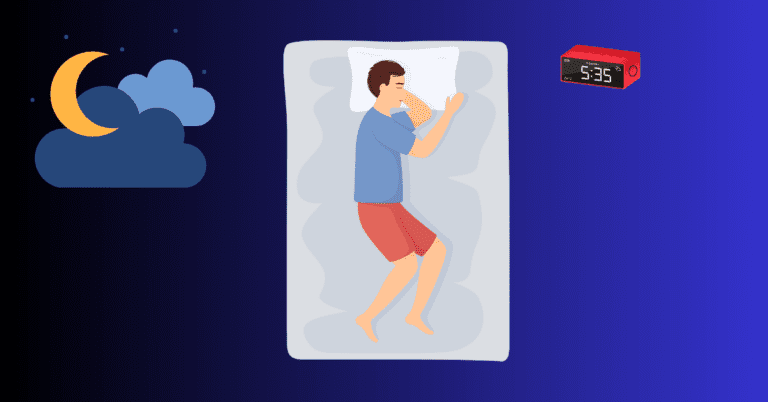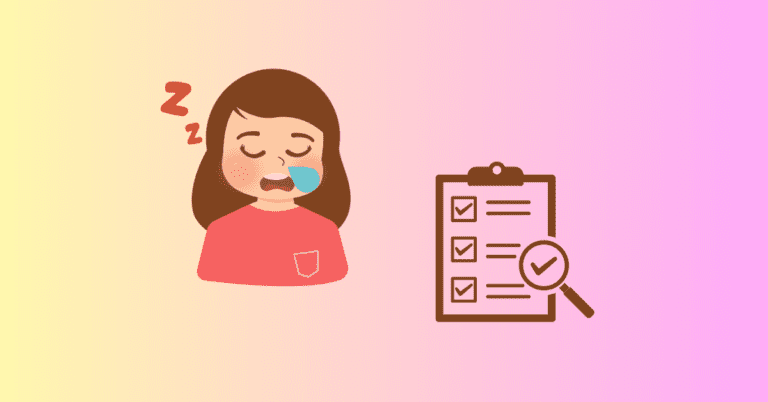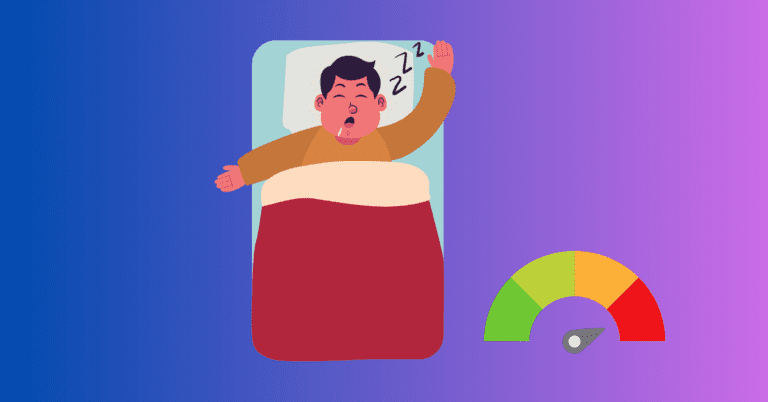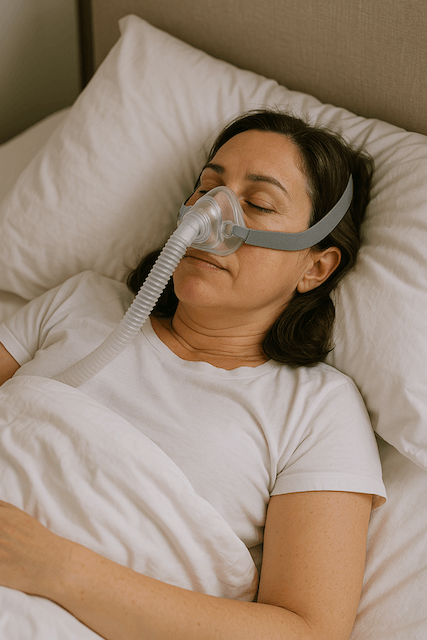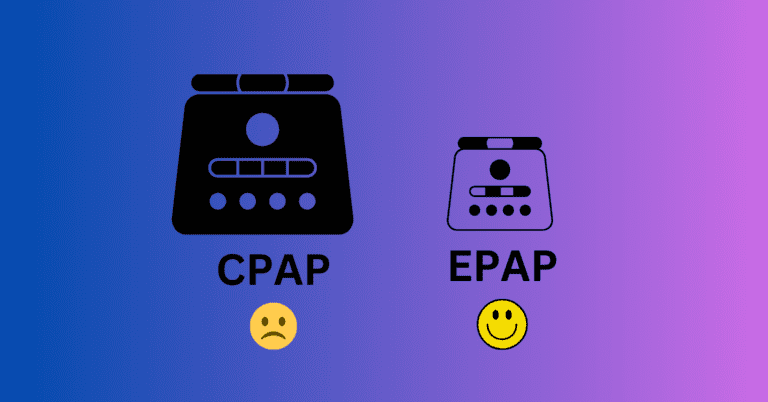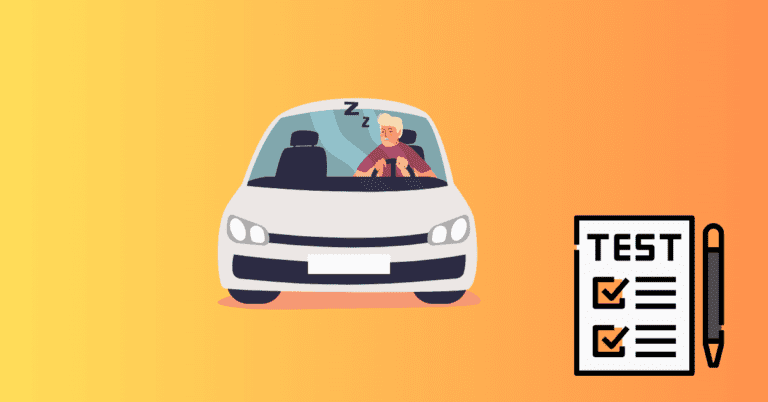Can Sleep Apnea Cause Seizures?
Jeremy Smith is a long-term CPAP user and sleep apnea advocate. After being diagnosed with severe obstructive sleep apnea, he created ByJeremySmith.com to help others navigate CPAP therapy through personal stories, gear reviews, and practical advice.
As someone who has severe sleep apnea, I like to research and provide support for others who think they may have the condition.
Ultimately you should always seek medical advice from your doctor if you think you have sleep apnea, who will then probably advise you to take a sleep study.
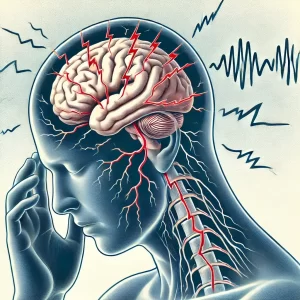
Sleep apnea is a common sleep disorder that causes repeated interruptions in breathing during sleep, leading to poor sleep quality and other health complications. But can sleep apnea cause seizures?
While sleep apnea itself may not directly cause seizures, research has shown a link between the two conditions. People with epilepsy are more likely to experience sleep apnea, and untreated sleep apnea can trigger seizures in certain individuals.
In this article, we’ll explore the connection between sleep apnea and seizures, how poor sleep can influence seizure activity, and the importance of proper diagnosis and treatment.
Let’s now dive in and try to answer the question – Can Sleep Apnea Cause Seizures.
What Is Sleep Apnea?
Sleep apnea is a sleep disorder characterized by repeated pauses in breathing during sleep. These pauses, known as apneas, can last from a few seconds to a minute or more and occur when the airway becomes blocked (obstructive sleep apnea) or when the brain fails to signal the muscles to breathe (central sleep apnea).
There are two main types of sleep apnea:
- Obstructive Sleep Apnea (OSA): The most common form of sleep apnea, OSA occurs when the muscles in the throat relax too much, causing a temporary blockage of the airway.
- Central Sleep Apnea (CSA): This form of sleep apnea occurs when the brain doesn’t send proper signals to the muscles that control breathing, leading to interrupted breathing patterns.
Both types of sleep apnea cause frequent disruptions to sleep and lead to oxygen deprivation, which can have a significant impact on brain function and overall health.
What Are Seizures?
A seizure is a sudden, uncontrolled electrical disturbance in the brain that can cause changes in behavior, movements, feelings, and consciousness. Seizures can vary in severity, ranging from brief lapses in attention to full-body convulsions.
Seizures are commonly associated with epilepsy, but not all seizures are caused by epilepsy. Other factors, such as sleep deprivation, drug use, or underlying medical conditions, can also trigger seizures.
There are two main types of seizures:
- Focal Seizures: These occur in one specific area of the brain and can cause symptoms like twitching, numbness, or confusion.
- Generalized Seizures: These affect both sides of the brain and can cause more severe symptoms, such as loss of consciousness and convulsions.
How Sleep Apnea Can Trigger Seizures
Although sleep apnea itself doesn’t directly cause seizures, it can contribute to factors that increase the risk of seizures, particularly in people with epilepsy or seizure disorders.
Sleep apnea leads to frequent sleep disruptions and reduced oxygen levels in the brain, both of which can make seizures more likely.
1. Sleep Deprivation
One of the most significant links between sleep apnea and seizures is sleep deprivation. People with untreated sleep apnea experience frequent awakenings throughout the night, often without realizing it.
These fragmented sleep patterns prevent the brain from entering the deep stages of restorative sleep. For individuals with epilepsy, sleep deprivation is a known trigger for seizures, as the brain becomes more excitable and prone to abnormal electrical activity when it is sleep-deprived.
2. Oxygen Deprivation
During an apnea episode, the body temporarily stops breathing, which can cause a drop in blood oxygen levels (hypoxia). The brain is particularly sensitive to changes in oxygen levels, and a lack of oxygen can increase the likelihood of a seizure.
Repeated episodes of oxygen deprivation over time can place stress on the brain, making it more vulnerable to abnormal electrical activity.
3. Poor Sleep Quality
Even if someone with sleep apnea isn’t fully aware of the sleep interruptions they’re experiencing, their overall sleep quality is likely to be poor.
Poor sleep can worsen brain function and cognitive performance, and for individuals with epilepsy, this can make seizures more frequent or harder to control.
The Link Between Sleep Apnea and Epilepsy
Research shows that people with epilepsy are more likely to have sleep apnea compared to the general population. Studies have found that up to 30-50% of people with epilepsy also have sleep apnea, and the two conditions can create a vicious cycle.
Sleep apnea can worsen epilepsy by disrupting sleep and increasing seizure frequency, while seizures can interfere with sleep quality, making it harder to recover and leading to even more sleep disruptions.
For individuals with both epilepsy and sleep apnea, treating sleep apnea may help reduce seizure frequency and improve overall sleep quality. In some cases, individuals who receive CPAP therapy (Continuous Positive Airway Pressure) to treat their sleep apnea report fewer seizures and better management of their epilepsy.
Diagnosing Sleep Apnea in People with Seizures
If you or a loved one has epilepsy or experiences seizures, and you suspect sleep apnea may be contributing to the condition, it’s important to seek a diagnosis. Sleep apnea can be diagnosed through a sleep study or polysomnography, which measures breathing patterns, oxygen levels, and brain activity during sleep. This test helps determine whether apneas are occurring and whether they are contributing to poor sleep quality and seizure activity.
During a sleep study, the following factors are monitored:
- Airflow: To detect pauses in breathing.
- Blood oxygen levels: To identify episodes of hypoxia.
- Brain activity: To measure sleep stages and detect any abnormal electrical activity.
Once sleep apnea is diagnosed, appropriate treatment can be prescribed to improve breathing during sleep and reduce the risk of seizures.
Treating Sleep Apnea to Reduce Seizure Risk
The most common treatment for sleep apnea is the use of a CPAP machine, which delivers a continuous stream of air to keep the airway open during sleep. For people with obstructive sleep apnea, CPAP can significantly improve sleep quality and reduce nighttime apneas. This, in turn, can help reduce seizure frequency in individuals who are prone to seizures triggered by sleep deprivation or oxygen deprivation.
For individuals with central sleep apnea, an ASV machine (Adaptive Servo-Ventilation) may be recommended, as it provides more targeted support by adjusting airflow in response to the patient’s breathing patterns.
In addition to CPAP or ASV therapy, individuals with epilepsy may benefit from the following steps to improve sleep quality and reduce seizure risk:
- Maintaining a consistent sleep schedule: Going to bed and waking up at the same time each day can help regulate the sleep-wake cycle and prevent sleep deprivation.
- Avoiding seizure triggers: Limiting caffeine, alcohol, and other triggers that may interfere with sleep.
- Medications: Anti-seizure medications prescribed by a neurologist may help control seizures and manage epilepsy.
Conclusion: Managing Sleep Apnea and Seizures
While sleep apnea may not directly cause seizures, the disruptions to sleep and oxygen levels that come with untreated sleep apnea can increase the risk of seizures, particularly in people with epilepsy.
Properly diagnosing and treating sleep apnea can significantly improve sleep quality, reduce seizure frequency, and lead to a better overall quality of life.
If you or someone you know has epilepsy and suspects sleep apnea may be affecting seizure activity, it’s important to consult with a healthcare provider. Addressing sleep apnea through CPAP therapy or other treatments can make a significant difference in managing both conditions.
Thanks for reading my article on Can Sleep Apnea Cause Seizures. If you have any comments, please leave them below.
Disclaimer: The content on this blog is for informational and educational purposes only and is not a substitute for professional medical advice. Always speak with your doctor or sleep specialist before starting, stopping, or changing any treatment or therapy related to sleep apnea or CPAP use.
Disclaimer: The content on this blog is for informational and educational purposes only and is not a substitute for professional medical advice. Always speak with your doctor or sleep specialist before starting, stopping, or changing any treatment or therapy related to sleep apnea or CPAP use.
